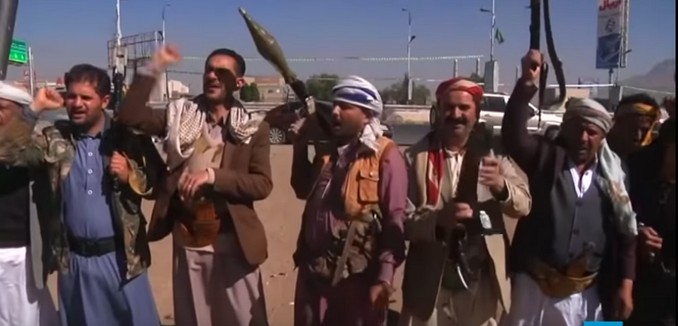The blame for the ongoing civil war in Yemen lays primarily with the Islamic Republic of Iran and not the West and the Saudi-led coalition, Britain’s Chair of the Commons Committees on Arms Export Controls (CAEC) has told the Guardian.
Labour MP Graham Jones – the most senior parliamentarian overseeing Britain’s arms control regime, including the lawfulness of arms sales to Saudi Arabia and Yemen – said that many civilian deaths were the direct result of the Iranian-backed Houthi militia’s use of civilians as human shields.
“I never read from the NGO community the huge problem we have now where human shields are being used,” Graham noted. “The coalition does not have the imagery to know anything other than that there is an enemy force on the rooftop. Before you know it, even using the lightest munitions and the wisest of considerations, you end up killing innocent people.”
A recent investigation by The Associated Press revealed that the Houthi rebels have also enlisted some 18,000 child soldiers into their group since the beginning of the civil war in 2014 – a war crime under international law.
Jones blasted NGOs operating in Yemen for failing to report the practice and accused them of not doing enough to distinguish civilian deaths resulting from the formation of human shields from those caused by coalition airstrikes.
“It is only from the generals and the Ministry of Defence that we get any honesty on this,” the MP charged. “I never read from the NGO community about the huge problem that we have in Yemen now, and in other recent theatres, where there are non-state actors and where human shields are being used.”
Jones previously told Britain’s Defence Select Committee that NGOs were “dishonest” in their reporting and imposed a simplistic anti-Saudi commentary on the complex civil war. “We see it time and time again with regards to airstrikes – there is a gross exaggeration by NGOs as to what has happened,” Jones said.
In a separate email exchange with a Jordanian-based group of reporters, the MP observed: “The main problem is Iran to Yemen, not [the] west to Yemen, which is nothing more than a political agenda rather than factual presentation. Too many on this bandwagon.”
The Times reported last week that the ceasefire is on the brink of collapse in Yemen. The Saudi-led coalition resumed airstrikes on the strategic port in Hodeidah after Houthi rebels had refused to redeploy troops in line with an UN-brokered ceasefire agreement signed in Stockholm in December.
Last month, the United Nations Security Council was told that the Iranian-backed militia has violated the ceasefire more than 200 times in less than two weeks. Houthi rebels killed 23 coalition forces and wounded 163 in 268 attacks between December 18 and December 30.
In January 2018, a UN panel determined that Iran was violating a UN Security Council arms embargo of the Houthis by shipping missile parts and other military equipment to the rebel group.
[Photo: FRANCE 24 English / YouTube ]




